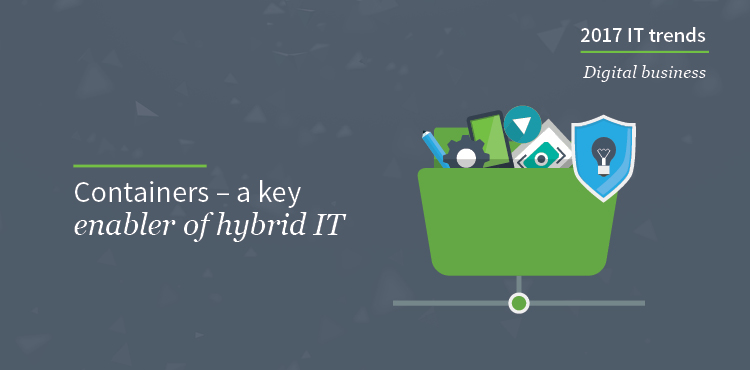TECH NEWS
Containers: the next big disruption in the data centre
As the rate of innovation accelerates, we’re seeing market ‘disruptors’ starting to be disrupted by players that are using next-generation technologies.
February 23, 2017

 Over the last year, the level of technological innovation – and adoption of those innovations – has reached an all-time high. As the rate of innovation accelerates, we’re seeing market ‘disruptors’ starting to be disrupted by players that are using next-generation technologies.
Over the last year, the level of technological innovation – and adoption of those innovations – has reached an all-time high. As the rate of innovation accelerates, we’re seeing market ‘disruptors’ starting to be disrupted by players that are using next-generation technologies.
The data centre provides us with an interesting example: Hypervisors and virtualisation have dominated data centre transformation discussions over the last few years. These technologies haven’t yet been fully adopted… but they’re already being disrupted by containerisation.
Enabling hybrid IT… and reshaping the competitive landscape
The interest in containers isn’t surprising: they involve a micro-services architecture, you can leap-frog the process of virtualisation, and eliminate the need for hypervisors entirely. Containers are operating system-independent, so you can easily move them between your on-premise environment and different cloud providers.
We believe that the rise of containers has the potential to disrupt a number of current incumbents in the market. Some of the larger players who ‘missed the virtualisation boat’ and are placing their bets on containers, seeing them as a means to raise an offensive against virtualisation vendors. Meanwhile, hyper-scale providers such as Google are open-sourcing container technologies, making the technology accessible to many who would not have been able to afford the innovation, and spurning rapid ecosystems and further solutions to make this development robust.
Containers will most likely be a key enabler of hybrid IT, especially in the data centre, allowing workloads to be moved between different compute environments with much greater ease than today’s virtualisation environments allow. This has been a major inhibitor of true hybrid IT to date. Once this barrier is removed, the market will see an acceleration in the adoption of hybrid IT models.
So, this is certainly going to be an interesting trend to watch in the year ahead.
We believe technology is the key that unlocks potential for businesses, and for the world, in ways we’re only beginning to comprehend. By applying our capabilities in digital infrastructure, hybrid cloud, workspaces for tomorrow, and cybersecurity, we look forward to continuing to help our clients accelerate their journeys to become digital businesses in 2017.
[colored_box color=”blue”]
Previous Top Digital Business Trends:
– #1: Renewed focus on ownership and access to data and metadata
– #2: Automation and DevOps becomes a business concern
– #3: Centralised transactional models are coming under attack
– #4: Hybrid IT has come of age
[/colored_box]